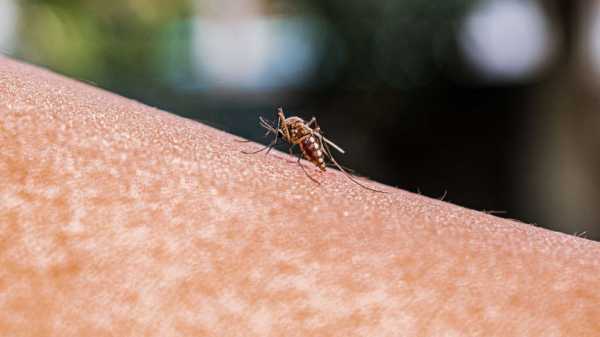Another case of locally acquired malaria was recently identified, this time in Maryland, according to health officials.
It's the latest in a series of infections that have popped up in the U.S., including seven in Florida and one in Texas.
These are the first confirmed malaria cases acquired locally in the U.S. since 2003 when eight cases were reported in Florida's Palm Beach County, according to the Centers for Disease Control and Prevention.
MORE: 4 more cases of locally acquired dengue reported in Florida as virus continues to spread: Officials
Warnings have been issued by officials for the public and clinicians to be on alert, but an expert said the risk to the public remains low and there is no reason for most people to be concerned.
"I don't think the average person needs to be worried," Dr. Mary Jo Trepka, chair of the department of epidemiology at Florida International University, told ABC News. "I mean, you're talking about a handful of cases in communities where there's millions and millions of people, right, so your average person is not at an elevated risk."
Malaria occurs when a person is bitten by a mosquito carrying malaria parasites, mainly the Anopheles mosquito, the CDC said. Malaria isn't contagious and can't be spread person-to-person.

An adult female Anopheles mosquito bites a human body in Tehatta, West Bengal, India. Feb. 24, 2023.NurPhoto via Getty Images
There are around 2,000 malaria cases a year, but they're most often diagnosed in people who caught the disease while abroad, according to the CDC.
Malaria used to be commonly acquired in the U.S, but a public health campaign beginning in 1947 consisting of spraying insecticides on the interior surfaces of rural homes or entire premises in counties where malaria was prevalent — as well as removing mosquito breeding sites and drainage — led to a total elimination of transmission by 1950.
Trepka said there are many reasons why malaria transmission is not common the U.S. such as living conditions, mainly that most people have screens and air conditioning. However, she said there is always a risk of contracting malaria and having locally transmitted malaria."
"All we need is a person who was untreated, to be living somewhere and to be bitten by an Anopheles mosquito, [which] can bite another person who is susceptible," she said, "So it is possible there have been cases we didn't even know about between 2003" and now.
She said there could be many reasons that cases could be going up now, including increased travel following the COVID public health emergency and people potentially traveling to countries where malaria is endemic and bringing it back.
Trepka said she recommends anyone traveling visit the CDC international travel web page to get information they need to protect themselves and to prevent bringing back any diseases.
MORE: 'Super' mosquitoes have now mutated to withstand insecticides, scientists say
"For the case back in 2003, and in our current ones, I would anticipate that we would be able to control them pretty quickly, but I wouldn't be surprised if we see more occurring also because it's getting warmer and the mosquitoes, they survive better when it's warmer," she said.
The World Health Organization says that in 2021, the latest year for which data is available, there were an estimated 247 million cases of malaria worldwide and 619,000 people died of the disease.
Before traveling to malaria-endemic countries, the CDC recommends taking malaria pills as well as insect repellent, long-sleeved shirts and pants, a bed net and flying insect spray. To prevent mosquito bites in general, the agency says to use insect repellent containing DEET, wear loose-fitted long clothing and use screens on windows and doors.
Sourse: abcnews.go.com






